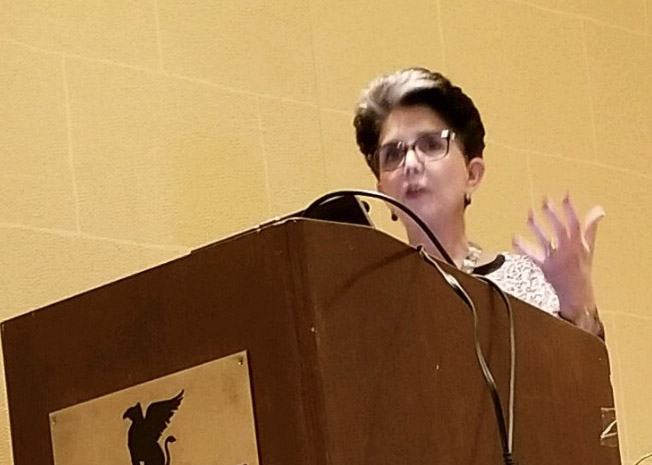On Saturday May 19th I joined Drs. Jay Shah, Noel Oliveira and Rafael Rafols at the Texas Medical Association (TMA) meeting in San Antonio, Texas for the first ever wound care CME event at a TMA meeting. We focused on wound care for the primary care physician, and it was gratifying to see the room full of clinicians – all of whom were there because they see patients with wounds in their practice. That makes perfect sense, because wounds aren’t a disease. Wounds are a SYMPTOM. That means that any and perhaps every specialist is going to see them because they can be related to nearly any underlying condition. However, most of them, (and I am now beginning to wonder if all of them) are a symptom of a nutritional deficit. When we created the Wound Healing Index (WHI), a suite of 7 models that predict whether wounds of various types will heal, malnutrition was a statistically significant factor in nearly all wound types. So, while I did speak about pressure ulcers and diabetic foot ulcers, I spent a lot of time talking about how simple nutritional supplementation with L-arginine and Vitamin D has had nothing short of spectacular results.
I think the following cases are informative.
[vimeo 271553688 w=1080 h=608]First is a man in his 60’s with insulin dependent diabetes on an insulin pump. He’s also got chronic congestive heart failure, coronary artery disease and severe diabetic neuropathy who developed a right lateral diabetic foot ulcer. His skin perfusion pressure is >100 mmHg bilaterally with a biphasic PVR so he does not have peripheral arterial disease. The foot ulcer was healing slowly with better off-loading even though his oral intake began to suffer due to his gastroparesis. Then his renal function deteriorated and he was placed on a low protein diet. An older adult with an ulcer needs about 1.2-1.5 g/kg of protein per day. Unfortunately, his renal diet did not allow anywhere near that amount of protein. Watch how his ulcers worsen despite using the same off-loading. The only thing that really changed was that his nutritional state worsened.
Next is a man in his early 40’s with poorly controlled diabetes for 20 years (a hemoglobin A1c of 11) who has coronary and peripheral arterial disease. He developed a DFU on the left dorsal foot that exposed tendons. He had severe peripheral arterial disease and underwent a left fem-pop bypass which restored good blood flow to his foot, but 2 weeks after surgery, the entire length of the surgical incision became erythematous and pus began to drain from multiple areas. His surgeon then discharged him. Tendon is exposed on the dorsal foot and the bypass incision on his thigh has opened revealing a tunnel proximally.
Note the dramatic improvement in his foot which starts within 2 weeks of nutritional supplementation. The foot is nearly closed within 8 weeks. The same is true for his thigh and in fact, for all the lesions along his surgical incision.
I’m learning these lessons about nutrition over and over. Prescription vitamin D (50,000 units once a week) is only a few dollars, and L-arginine (e.g. Arginaid) is about $50 per month.
Dr. Rafols gave a very unique presentation that was focused on necrotic lesions which are often harbingers of death. We see those with regularity in wound care (such as with calciphylaxis), and too often the wound care practitioner is left to deliver the bad news, but we rarely discuss this challenging topic at meetings. It was a good segue to the panel discussion on the ethics of caring for elderly patients with poor nutrition and wounds, led by Drs. Richard Ferguson (Medical Director of Embrace Hospice, San Antonio), Neela Patel (Geriatrics and Palliative Care, UTSA) and Jay Shah. Thirty minutes was not long enough to do justice to this complex and highly nuanced topic that requires us to navigate the often uncharted water between the patient’s wishes (assuming they are known), the family’s (sometimes misdirected) best intentions, and our own ethical and moral responsibilities. Thank you to the TMA for supporting the first Wound Care CME, and to Jay for organizing it.
https://www.texmed.org/uploadedFiles/Current/2016_Events/TexMed_Meeting/2018%20Final%20Program.pdf

Dr. Fife is a world renowned wound care physician dedicated to improving patient outcomes through quality driven care. Please visit my blog at CarolineFifeMD.com and my Youtube channel at https://www.youtube.com/c/carolinefifemd/videos
The opinions, comments, and content expressed or implied in my statements are solely my own and do not necessarily reflect the position or views of Intellicure or any of the boards on which I serve.



